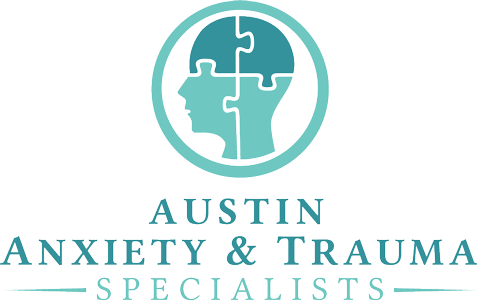Once upon a time, you toppled off your first bike. What happened next was likely pivotal in your self esteem formation. An older sibling might’ve said, “That’s okay, try again!” Or a parent might have fretted over your knee and whisked you inside. Over time, your family’s comments followed patterns that ultimately shaped your beliefs about challenges, hardship, and your abilities.
The belief system
A belief system is your brain’s way of understanding yourself and the world around you. These beliefs initially form in childhood, then personal experiences shape them.
What you thought about yourself as a child tends to stick with you, whether you realize it or not. For example, if a coach told you you’re not cut out for sports and kept you from playing, you might hold onto a belief that people shouldn’t bother trying to improve if they aren’t naturally gifted. Later in life, this belief might cause you to shy away from new experiences under the assumption that you won’t be “cut out for it.”
Negative belief systems are limiting and hurtful. The good news is you can learn to reprogram it by challenging negative thoughts and ultimately, realizing your true self worth.
Cognitive distortions
Negative beliefs about ourselves often stem from cognitive distortions, or untrue views of reality. Early theories suggest that these habitual, negative ways of thinking are not neurological defects, but an evolutionary defense mechanism to think “adaptively rather than logically” when coping with threats and adversity.
Cognitive distortions don’t just go away. But understanding common types can help you identify and correct them. You may recognize some of these seven distortions in your thinking patterns:
Fortune telling
Especially in times of crisis, it can be hard to stay optimistic about the future. But even good news can be distorted by pessimistic predictions. Say you’re offered a promotion. However, instead of feeling excited and proud, you’re concerned about failing to manage the new responsibilities and decline the offer. Fortune telling can lead you to think the future is bleak and keep you from achieving the greatness you deserve.
Catastrophizing
When people catastrophize, they assume the worst scenario and may obsessively worry. “What if” questions bombard and anxiety escalates. For instance, you notice your cat isn’t as cuddly today. In fact, she seemed a bit withdrawn yesterday too. Is she sick? Does she have depression? Do you need to take her to the vet? How much will that cost, and can you even afford that? What if something is seriously wrong and you have to put her down?
A simple concern can quickly spiral into an imagined catastrophe. This harmful distortion is commonly influenced by anxiety or depression and can be debilitating.
Black and white thinking
A person who views the world through polarized lenses often only notices their own failure or victory rather than celebrating the climb. You may view human actions as strictly good or bad, rather than recognizing moral gray areas. When perfection isn’t achieved, you may engage in negative self-talk, causing or worsening feelings of depression and anxiety.
Personalizing
You’re texting a friend, but something feels off. They’re not using as many emojis as usual, and their answers are curt. If you tend to jump to the conclusion that you’ve done something wrong, you might have an over-personalizing distortion. Your past experiences may be causing you to be overly sensitive to others’ mood and perception of you, so when things go wrong, you assume you’re at fault or that others are blaming you.
Magical thinking
In this distortion, you belief that the course of events depends on your thoughts and actions, however unrelated these actions might be. For example, you think you’ll meet the love of your life once you finally lose ten pounds. Or if you don’t hit any red lights, you’ll have a good day at work. Superstitions like knocking on wood or wearing lucky underwear are also forms of magical thinking.
Many people entertain magical thoughts for comfort, optimism, and confidence. But not all that glitters is gold. When expectations are inevitably unmet, the reality can be devastating.
In extreme cases, this cognitive distortion could be a sign of Obsessive Compulsive Disorder (OCD), in which ritual actions are required to dispel obsessive thoughts. Some people with OCD carry a strong conviction that not performing their rituals could have tragic consequences—a heavy burden to bear.
Shoulds
Beliefs about what people “should” do causes you to hold yourself and others to standards that won’t always be met. If you think people should always eat healthy, you may end up judging yourself for breaking your own “rule”. Cultural and religious standards often create internalized beliefs, but can become dangerous when used as absolutes, as they may create feelings of guilt, self-loathing, and judgment.
Disqualifying the positive
When receiving a compliment on your work, do you ever feel like they’re just being nice? Someone who disqualifies the positive might deny credit for a compliment or hyperfocus on the one negative comment on an outstanding evaluation. A lack of control over difficult circumstances as a child can create a sense of “learned helplessness,” leading people to believe there aren’t good things in store for them. But keep reading, because positive change is just around the corner!
Challenging cognitive distortions
When a life-long belief is contested, it can be tough to even consider accepting a different reality. Negative thought patterns are habitual and take time to break. Get started today with these two key steps:
- Identify negative thoughts. Now that you’ve learned some of the common cognitive distortions, look out for them. Ask yourself, “What thoughts led me to this moment?” Take note of these thoughts in a journal to keep track of your progress.
- Restructure negative thoughts. Decatastrophize! The worst-case scenario might not be as unmanageable as you think. What if the worst really did happen—what would you do then? Could you manage it? Another technique is to put the thought on trial. Is this thought realistic? Do you have evidence for this thought, or has evidence been misinterpreted?
Identifying and restructuring distorted beliefs are how Cognitive Behavioral Therapy (CBT) helps treat mental health conditions like anxiety, depression, and low self-esteem. Cognitive distortions are common but can be difficult to break out of on your own. But you aren’t alone.
If you want the right guidance navigating harmful thoughts in your belief system, your therapist should be trained in CBT. Our therapists at Austin Anxiety and Trauma Specialists can determine if CBT is right for your unique needs and give you to the tools to challenge negative thinking.
You may be feeling helpless, unmotivated, or unworthy of living a good life. The truth is, you are more than worthy. And you don’t have to keep feeling like that.






